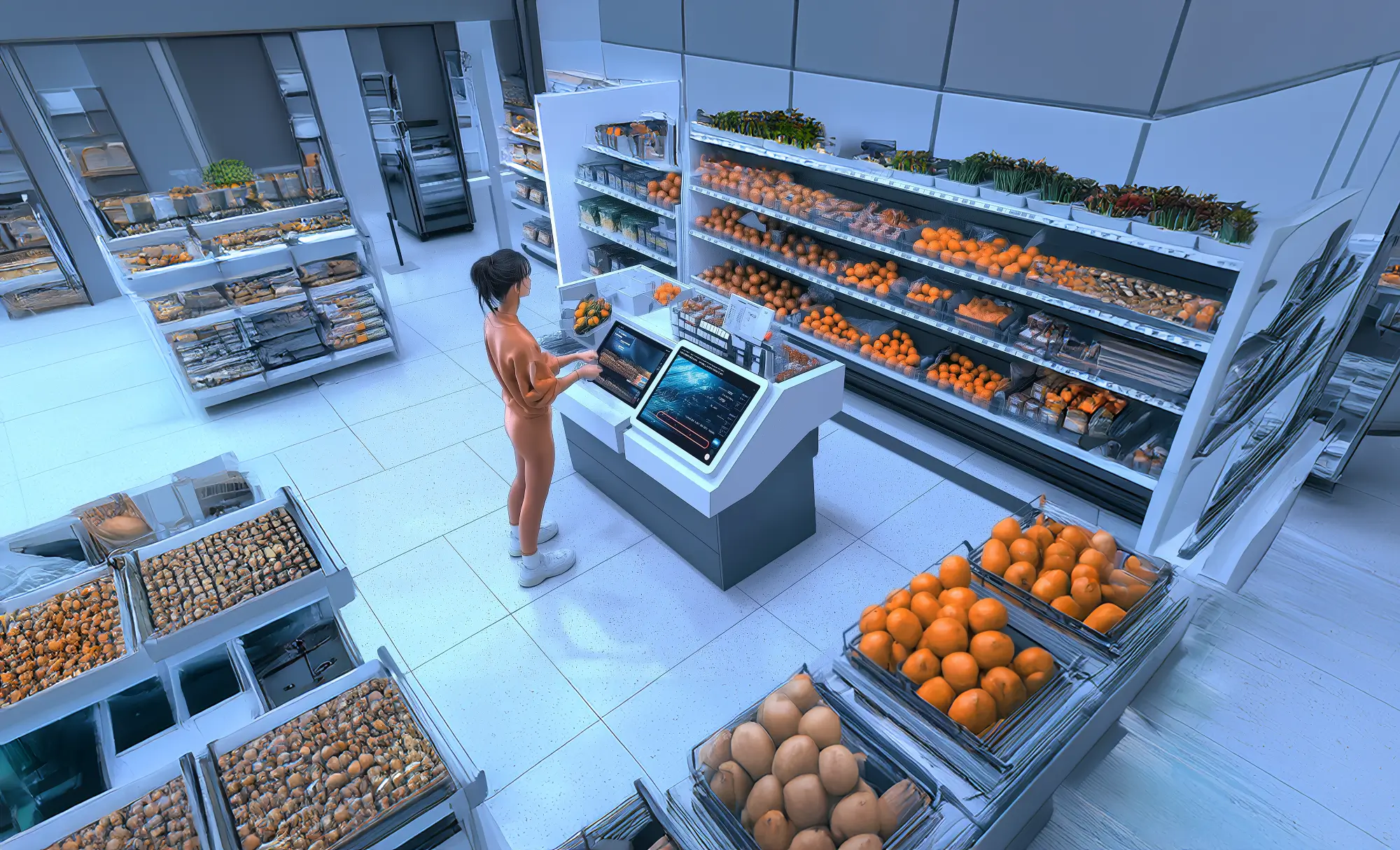As technology continues to evolve, the retail industry is embracing a new frontier in customer experience: multimodal AI. This advanced form of artificial intelligence, capable of processing and integrating information from various sources, is transforming how consumers shop and interact with businesses. From voice AI in retail guiding customers through their shopping journeys to checkout-free stores, AI is redefining the retail landscape.
Amazon’s Checkout-Free Vision
Amazon is at the forefront of this transformation with its new multimodal AI system for Just Walk Out technology. This system enhances the accuracy and scalability of checkout-free retail environments by analyzing data from cameras and sensors throughout the store simultaneously. Unlike its predecessors, which analyzed shopper actions in a linear sequence, this AI processes multiple data sources at once, allowing it to handle complex shopping scenarios more precisely.
“We accomplish this by analyzing data from cameras and sensors throughout the store simultaneously, instead of looking at which items shoppers pick up and put back in a linear sequence,” Amazon explains.
The AI’s continuous learning capability is particularly noteworthy. Trained on a 3D map of the store and an image catalog of merchandise, it can understand the placement of fixtures and accurately recognize products. This suggests a future where retail environments become increasingly responsive to shopper behaviors, providing a seamless and efficient shopping experience.
Voice AI: A New Frontier in Customer Interaction
Meanwhile, OpenAI is making strides in customer interaction with its new voice interface for ChatGPT. Capable of engaging in conversations across 40 languages, this technology could revolutionize customer service and marketing strategies, particularly in the retail and healthcare sectors.
Shawn DuBravac, CEO of Avrio Institute, sees this as a significant shift. He envisions a future where businesses leverage this technology to create more engaging customer service interactions. “This can lead to higher customer satisfaction due to the personalized and empathetic nature of the interactions,” DuBravac said.
The Future of Retail: Shifting Consumer Behavior
As these technologies advance, they raise important questions about the future of retail and how consumer behavior is shifting as a result. Voice AI and multimodal systems are not just about improving efficiency; they are reshaping the entire customer experience. From personalized shopping assistance to seamless checkout experiences, AI is driving a new era of retail innovation.
However, the integration of AI in retail also brings up ethical concerns. The humanlike qualities of these AI systems, especially in voice interactions, have sparked debates about users forming emotional attachments to AI. OpenAI acknowledges these risks and emphasizes the importance of transparency, advising businesses to communicate the AI’s nature clearly to customers.
Looking ahead, as brands refine their AI offerings based on insights gathered through these technologies, customers may feel better understood, potentially leading to increased engagement and brand loyalty. However, this must be balanced with the risk of overreliance on AI, ensuring that the human element remains an integral part of the retail experience.
In conclusion, the rise of multimodal AI in retail marks the beginning of a new era. From voice assistants that provide personalized recommendations to checkout-free shopping experiences, AI is transforming how we interact with the retail world. As these technologies continue to evolve, they will undoubtedly play a crucial role in shaping the future of shopping.






